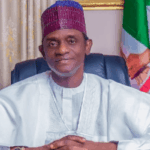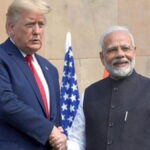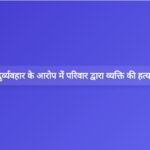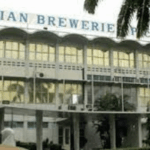When the French government's Viginum agency, in collaboration with the UK Foreign, Commonwealth and Development Office and the EU External Action Service, released a report tracing Russian disinformation networks across Africa in 2024, a secret was revealed: Nigeria had quietly become a key theater in Moscow's expanding soft power campaign.
The report identified the African Initiative press agency as a central actor, noting its growing digital footprint in Nigeria and its role in coordinating narratives designed to reshape public sentiment towards Russia and away from the West.
To observers of African geopolitics, this was no surprise. Russia's influence campaigns on the continent have long relied on a simple formula: exploit anti-colonial anger, undermine Western credibility, and present Moscow as a true ally of African sovereignty. Until recently, the strategy focused on Francophone West Africa – Mali, Niger and Burkina Faso – where Russian propaganda portrayed Western counterterrorism failures as evidence of neo-colonial betrayal.
A case in point: After the 2017 ambush of US troops in Tongo Tongo, Niger, Kremlin-linked outlets promoted the idea that the US military presence invited extremist violence. The message resonated deeply in societies where colonial scars are fresh, and by 2019, anti-French sentiment had grown so high that President Emmanuel Macron summoned African leaders to Paris and chastised them for failing to confront the backlash.
But the infection has since spread southward.
Nigeria: Cultural and Demographic Awards
Nigeria shares porous northern borders with Niger and, by extension, its disunity. The Hausa, who make up 55 percent of Niger's population, are also the dominant northern ethnic group in Nigeria. Their family and religious ties extend beyond the borders of the Sahel. When Russian propaganda found fertile ground in Niger, it was inevitable that its echoes would reverberate in the north of Nigeria.
This echo became visible in August 2024, when protesters in Kano, Nigeria's largest northern city, waved Russian flags during an #EndBadGovernance demonstration. For many of them, this symbol was not support for Moscow's authoritarianism, but rather their desire for Russia to have a decisive hand in stabilizing Niger, Mali and Burkina Faso – countries that had expelled Western troops in favor of Russian cooperation.
With 237 million people and counting, Nigeria not only represents Africa's largest population, but also its largest market for information warfare. It is the cultural center of the continent – home of Nollywood and Afrobeats, two industries worth a combined total of $7.2 billion and employing more than five million people. Nigerian movies and music not only dominate Africa; They shape global perceptions of black identity from Johannesburg to Kingston. Whoever controls the stories transmitted through Nigeria's digital and cultural pipelines wields enormous soft power on the continent.
Digital Highway, Disinformation Highway
By the beginning of 2025, almost half of Nigerians were online, with TikTok and WhatsApp serving as the primary vectors for political discussion. Additionally, 70 percent of Nigerians are under the age of 25, many of whom consume and share content at staggering rates, often in the absence of fact-checking infrastructure.
Enter Russia:
In July 2024, the African Initiative opened its Lagos bureau, pushing content through the Afri app, praising the military coup in the Sahel and denouncing ECOWAS as a Western puppet. On Telegram and These narratives highlight long-standing cultural conservatism and suspicion of Western liberalism.
The results have been measurable and costly.
Manipulated posts linked to pro-Russian sources increased engagement around major cultural festivals by 40 percent, redirecting audiences toward memes glorifying the junta and denigrating democracy. This digital noise undermines Nollywood's authenticity – its central appeal – and weakens Nigeria's global storytelling power.
Economically, the fallout is stark. Disinformation and piracy cost Nigeria's creative industries $1.5 billion annually, with Afrobeats streams declining amid bot-driven boycotts of artists deemed “Western-aligned”. Since the creative sector accounts for five percent of GDP and employs one-fifth of urban youth, this kind of disruption is not just cultural sabotage – it is economic warfare.
AI mirage: when reality becomes a deepfake
Nigeria's digital vulnerability is exacerbated by the AI literacy gap. A 2025 meta-commissioned study found that 75 percent of Nigerians under the age of 30 failed to identify deepfake videos, particularly videos in Hausa that depicted ECOWAS “betraying” Sahelian allies.
Local fact-checkers like Dubawa now deploy AI verification tools that catch 60 percent of manipulated media in real time, but their reach remains urban and limited – covering only 15 percent of rural internet users. This has exposed over 120 million Nigerians to algorithm-based disinformation.
The implications are beyond imagination. As Moscow-linked networks infiltrate apps like Afri, the cyber security risks increase manifold. In 2025, Interpol reported that 17.5 percent of Nigerian users were affected by phishing attacks, many of which were linked to data-harvesting schemes mapping opposition movements. Fiber-optic breaches have increased by 45 percent year-over-year, and 70 percent of banks remain without AI-based ransomware protection. Deloitte's 2025 cybersecurity forecast warned that such vulnerabilities could invite state-backed hacks capable of disrupting Nigeria's power grid.
Shadow of the Sahel: A geopolitical domino
This pattern is already visible in the Sahel and Libya, where Russian interference through Wagner remnants and bot farms justified coups and fractured the Western alliance. In Libya, Moscow's redeployment of Syrian jets in 2025 helped strengthen General Haftar's grip in the east, undermining UN unity and strengthening Russia's military footprint.
The threat to Nigeria is contagion. Pro-Russian sentiment in border states has doubled since 2024, and rumors of a coup linked to northern officials in October 2025 – although denied by the government – signal a worrying change. Had such a coup succeeded on Nigeria's Independence Day, it might have united Africa's largest democracy towards Moscow and shattered what remains of ECOWAS's fragile unity.
the coming storm
Russia's strategy is consistent: using disinformation to delegitimize Western partnerships, supporting “sovereignty” through authoritarian models, and exploiting the disillusionment of African youth. The August 2024 protests, in which 24 people were killed and 76 protesters were charged with treason, were not just about fuel prices or corruption, they were about narratives. Competing visions of what it means to be free, independent and African.
By 2027, as Nigeria heads towards its next elections, these narratives may define its geopolitical soul. A generation raised on Telegram channels and TikTok edits may see in Sahel's junta not a warning – but a blueprint.
If it does happen, it will not be because Moscow has conquered Nigeria. This will happen because Nigeria, regardless of its digital sovereignty, has allowed its voice, its culture, its youth, its truth to be rewritten by someone else.











